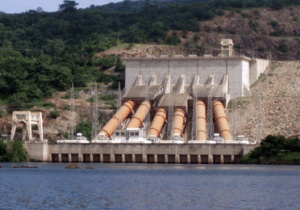Business News of Thursday, 8 May 2025
Source: www.ghanawebbers.com
The merry-go-round of the industrial growth
The Tema industrial enclave highlights the impact of the Akosombo Dam. Ghana seeks alternative electrical power due to ongoing shortages. Demand for electricity increases yearly, prompting this need.
The NPP government added two hydropower units: Akuse and Bui. This decision aimed to reduce reliance on costly fossil fuels. The plan for these stations began in the 1960s under the CPP government.
Inadequate planning for electrical power has led to expensive alternatives. Investors provide costly solutions that only meet daily needs. These options often ignore climate change considerations.
Ghana's thermal power installations and oil discoveries have lowered electricity costs. However, global demand for electricity is rising rapidly. This includes increased needs from electric vehicles and advanced technology.
In 2026, Egypt will launch its first nuclear reactor with 1.2 GW capacity. Three more reactors will add over 4.8 GW of energy. The total cost for these reactors is $28 billion, with Egypt contributing $3 billion.
Egypt plans to pay off loans within 25 years through its Nuclear Power Plant Authority (NPPA). This project will be northern Africa's first major nuclear initiative, supplying up to 50% of Egypt’s power.
The first unit should start operating in 2026, with full capacity by 2030. The project aims to create about 50,000 jobs and boost economic growth in Egypt.
Saudi Arabia also recognizes the unreliability of fossil fuels for power generation. They are seeking alternatives to meet their growing energy demands.
Ghana's ambitions for sky trains and cargo transport seem unrealistic without reliable power supply. Most trains require stable electrical energy, which Ghana currently lacks.
Spending two million dollars on a sky train feasibility study seems misguided without proper energy sources. Ghana knows what it needs but struggles to take decisive action.
Despite borrowing money for power sustainability improvements, crises persist during fuel price hikes or dry seasons. Short-term solutions do not address long-term issues effectively.
Ghana’s nuclear ambitions may take over a century without commitment and funding support. A dedicated effort is essential for establishing a nuclear power project in Ghana.
This initiative could attract investment from neighboring countries and lower electricity costs for industries. It would also reduce dependence on imported fossil fuels and mitigate climate change impacts while creating jobs.
It is crucial that Ghana moves beyond merely managing inherited systems toward developing better alternatives.











